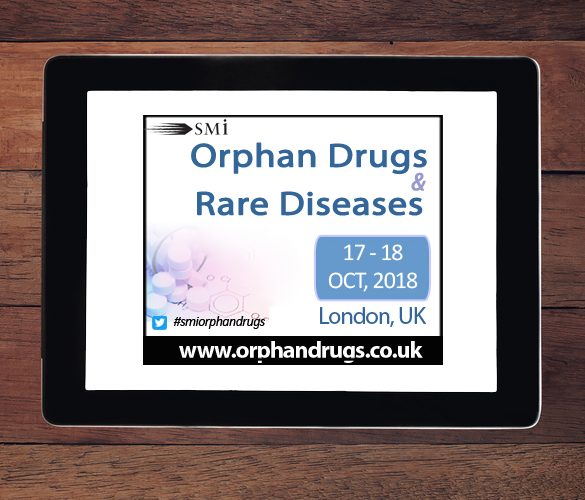How challenges including Brexit, inadequate funding & insufficient sample sizes hinder rare disease research
Posted: 4 September 2018 | SMi Group | No comments yet
SMi Reports: 8th Annual Orphan Drugs and Rare Diseases Conference to bring together pharmaceutical companies, non-profit organisations and orphan drug developers to explore alliances and facilitate progress.


Research into orphan drugs and rare diseases is facing challenges such as Brexit, lack of research, knowledge and experience, gaining funding, and assembling large enough sample sizes of affected patients in order to effectively study the diseases. The importance of collaboration between patient organisations, communities and the pharmaceutical industry has never been more important.
With this in mind, this year’s 8th annual Orphan Drugs & Rare Diseases conference, taking place 17th – 18th October in London, aims to explore alliances in an effort to facilitate the development of effective treatments.
Since such a small population of people are affected, conducting trials and research is very difficult. The two-day conference will host expert speaker Toni Mathieson, Chief Executive at Niemann-Pick UK, who will discuss “The Impact and Challenge of Research in a Small, Rare Patient Population: The Experience of NPUK”.
“The slow speed of research and trials, coupled with the issue of access to new and innovative therapies is a huge frustration for families.” Mathieson states in her exclusive interview with SMi. “By working together and in consultation with our communities, industry and NHSE, we could influence the processes involved and improve experience and outcomes for patients.”
Uncertainty in the future of treatments is exacerbated by the prospect of Brexit, as the UK faces exclusion from a Europe-wide network for treating rare diseases and depriving over 150,000 citizens, two-thirds of them children, of their best hope for treatment.*
Nicolas Sireau, CEO and Board Chair of the AKU Society will also be sharing his personal experiences at the conference. SMi caught up with him recently to discuss the challenges facing the field, especially in funding research.
“The biggest challenge that we face is access to funding.” Sireau states. “We must rely on the EU commission, which receives hundreds of applicants and only a small proportion manage to get the funding.” Sireau will also be giving a keynote presentation at this year’s highly-anticipated event “Patient Involvement in Orphan Drug Clinical Development: The Experience of the AKU Society”.
The issue of orphan drugs and rare diseases is steadily gaining global traction, with China recently releasing a national list of rare diseases, as well as allowing foreign clinical data in new drug applications. The aim is to shorten the timeline for the approval of new orphan drugs, including imported drugs, and encourage Western drug developers to import new drugs into China.**
This gives new hope for patients and families affected by rare diseases as a global engagement will provide more research opportunities, more funding, larger sample sizes of affected patients and as a subsequent result, a better quality of studies and treatment.
At Orphan Drugs & Rare Diseases 2018, delegates will have the chance to hear the first-hand experience of the effect the recent challenges have had on patient organisations and industry leaders, as well as the unparalleled opportunity to network amongst international key players and scientific pioneers. As well as the conference, SMi will be hosting an interactive workshop on “Working together for HTA in rare diseases – A step too far or the way forward?” led by Josie Godfrey, Director, JG Zebra Consulting, on 16th October.
Visit the website to download the full speaker interviews, see the agenda and keep up to date with the latest developments at http://www.orphandrugs.co.uk/dtrpr
Related topics
Disease research, Drug Discovery, Drug Discovery Processes, Orphan drugs, Research & Development
Related organisations
SMi Group



